How to Critically Analyse an Online Health Resource for Validity and Authority
The internet is saturated with information.
“Technorati, a Web-tracking service, recently estimated that there are more than 70 million blogs, with an average of 120,000 new blogs being created each day” (Lagu). The countless array of advice raining from millions of authors the internet has given a voice to has created oceans which often seem perilous to navigate. How do we make the distinction between quality information and misinformation now that nearly any average person can become the next Dr. Oz? In this paper I will be giving an example of how to critically analyse an online health resource in order to better determine its legitimacy.
The resource I have chosen is an article from the blog site called Paleo Hacks, “7 Ways to Naturally Heal Adrenal Fatigue”.
I have chosen this article because myself and my partner both deal with adrenal fatigue, myself from chronic stress/PTSD and my partner from Hashimoto’s disease. We have both done a lot of research over the past several years in order to better understand our health. I have found some great information through reading the research cited in health blogs I have read in the past. My fatigue has been exacerbated recently with the season change and so I decided to look into how to restore my adrenal levels with herbs.
Attention grabbers are important to any type of work, and many online blogs have perfected the hook, line, and sinker.
Patiry opens this article with a very relatable introduction with a reference to the weekly stress we all encounter in order to capture a broad audience. The author then includes a brief explanation and definition of what adrenal fatigue is, offering a hyperlinked blog further explaining adrenal fatigue written by another author on the same website (Red flag?) (Patiry). Listed in the author’s symptoms list is a proposed cause and symptom of adrenal fatigue (autoimmune conditions) but she has not listed it in the potential causes, so a bit of wariness has set in (Patiry).
Patiry continues her article with a brief explanation of the mechanism of action behind how herbs can benefit adrenal fatigue. These statements lack any real depth and act as a general statement as though they might help anybody. The author does not express that there might be adverse effects for some and that others might not experience any benefit. She concludes this section by suggesting to mix herbs on the list for combined effects without any research to back this claim up or suggesting that others should check the literature for any possible drug interactions (Patiry). While often many herbs can be safely combined, it is always wise to be absolutely certain there are no possible adverse drug interactions.
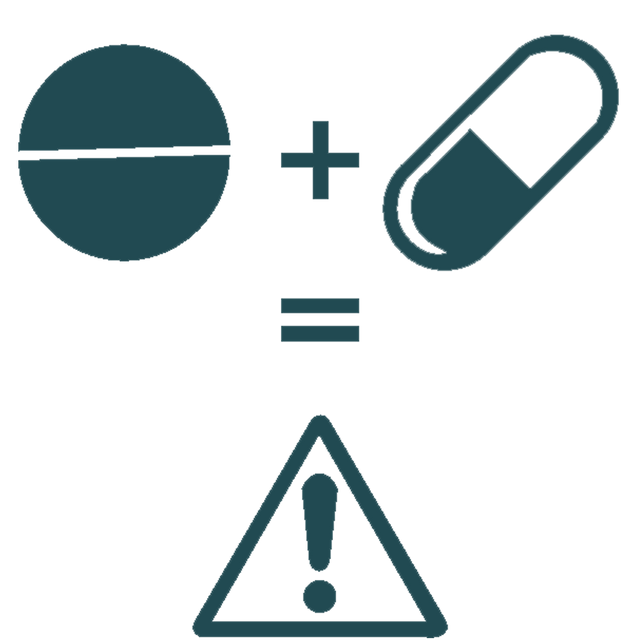
The section following introduces the proposed seven herbs one can use to “naturally heal adrenal fatigue” (Patiry).
Patiry lists ashwagandha, Rhodiola rosea, astragalus, chamomile, ginseng, lavender, and licorice root, respectively. The author offers a short explanation of the mechanism of action and directions for use in each instance. Each listed herb has been backed by at least one, and three at most, scientific article sourced from PubMed (Patiry). The titles are not available in a citation list, so I’m not initially sure that any of these articles are actually related to what she is suggesting without going into the paper myself. Reading the research is definitely necessary, in any case, to see whether the source itself is primary and of quality research.
The article concludes with an argumentum ad passiones of using these herbs to “help give your adrenals a break and get back to feeling like your old self” (Patiry).
Everybody clearly wants to feel like “their old self”, or that healthy past version of you before the fatigue. However, this is a very obtuse cliché which might alienate some – for example, those who don’t know what its like to have ever felt well. Patiry has presented an evidently overly optimistic article which takes no heed to caution while giving medical advice to potentially billions of people with access to the internet. A quick analysis of the author’s and the website’s credentials reveals some pretty interesting information to be discussed.
Megan Patiry, the author, is listed on the website as “an inquisitive nutrition and wellness writer harboring an editorial love affair with the decadent and the nutritious…a dedicated researcher in all areas of ancestral health, a certified specialist in fitness nutrition, personal trainer, and professional almond milk latte addict” (FellowFitness).
I found her LinkedIn page and see that she has a bachelor’s in creative writing and advertising, along with certificates/licenses in yoga, fitness nutrition, and neuro-linguistic programming.
What I see after researching the author is that she does have at least a decent understanding of health possessing a license in fitness nutrition which might help bolster her understanding of research. However, her focus is primarily in fitness nutrition and not general nutrition which might cause a bias in her presentations. A couple of things that stand out as potential red flags are the degree in advertising and the license in neuro-linguistic programming (NLP). NLP is often used by advertisers and sales companies as a means of subversively shifting a customer’s desire for a product. Having a degree in advertising means that the author is educated on how to draw customers in. I would be very careful and thoroughly research any claims made by this author knowing this information about her.
The CEO of Paleo Hacks, David Sinick, is listed on the website as “the CEO and co-owner of Paleohacks.com.”
His brief biography states nothing about his education and simply says a bit about who he is and that the goal of the website is to “show you that healthy eating doesn’t have to be hard, boring, or tasteless” (FellowsFitness). I looked into Sinick’s education by finding him on LinkedIn and found that he dropped out of college, but it doesn’t say what he was studying. He possesses no other education. An interview by Evergreen Profits revealed that Sinick “has been behind the scenes for over 8 years on everything from NYT bestsellers, online summits, high end coaching, information products…”
Reading through all of this information about David Sinick reveals to me that while Sinick may be a marketing genius, he has very little authority to speak on medical advice – especially without any disclaimers! However, knowing that he is so focused on marketing means that I would probably avoid his website in the future just purely out of safety. A site which gives out medical advice and does not require the authors to mention possible drug interactions or adverse effects, or any other disclaimers, is definitely one to be extremely cautious on.
Interestingly, the owner of the website is not listed and cannot be found elsewhere.
This alone makes me wonder why they would hide their identity. Are they purely another marketing genius like Sinick? Do they have education in nutrition and health? They very well could be a well-educated doctor, but without knowing for sure – this is definitely another possible red flag. One thing’s for certain though – this blog is thoroughly imbued with advertisements.
Along the right side of the page is a list of trending and other suggested posts on the website (Patiry).
This list follows you to the bottom of the page as you scroll down. At no point do you not have some sort of advertisement being blasted in your face. In contrast, there is only one external advertisement to a nutritional supplement (Patiry). Advertisements are meant to sell some sort of product. Thus, they are inherently biased. Seeing the circular hyperlinks of this article linking back to their website and the push to read their other articles seems as though they have developed an echo chamber of sorts. I would exercise caution or completely avoid websites designed as such.
Determining whether or not a resource has factually presented the information or whether misinformation is being shared can be accomplished by thorough examination of any citations.
Further independent research might be required if scientific research articles are not sourced in the blog. One of the claims made by Patiry was that Rhodiola rosea “is best used if adrenal fatigue is causing you to feel physically, emotionally, and mentally exhausted.” Patiry cited two articles from PubMed. One of which was not a primary resource. The other was a double-blind clinical trial, which I will examine, alongside a second double-blind trial, to see if she has properly portrayed the information therein.
I immediately saw an issue with the information presented upon opening the cited article.
The article was titled, “The Effect of Acute Rhodiola rosea Ingestion on Exercise Heart Rate, Substrate Utilisation, Mood State, and Perceptions of Exertion, Arousal, and Pleasure/Displeasure in Active Men.” Two major red flags stand out here. Firstly, the double-blind trial is focused on exercise and how Rhodiola rosea affects the measured outcomes of the trial. Patiry never once mentions anything about exhaustion from exercising, her claims are for adrenal fatigue – not exertion! The information held within this text clearly do not represent the claims that Patiry is making. Exercise does stress the adrenals, but it is a far stretch to make it synonymous to adrenal fatigue.
Patiry’s claims are general and broadly sweeping with no exclusions/inclusions.
However, the double-blind trial that she has cited to back up her claims was conducted on a wholly male population, with a study sample of only 10 participants (Duncan)! This study should be taken very lightly, though perhaps as a great place to start future research if the results show benefits. In regards to the resource in question by Patiry though, this article does not lend any credit to the author’s claims that Rhodiola rosea helps with adrenal fatigue. The study states, “results demonstrated dampened [perceived exertion], greater vigor, perception of arousal, and pleasure in the presence of R. rosea compared to placebo” (Duncan). Clearly then, Patiry has ill portrayed the results of this study in attempts to fluff up her article.

I have begun to understand why Patiry may have cited a secondary resource reviewing literature surrounding R. rosea after searching through Scopus and PubMed myself.
There are no current studies which focus specifically on the effects of R. rosea on patients with adrenal fatigue which I could find. However, I was able to find a double-blind clinical trial which studied the effects of R. rosea on general fatigue.
The study by Salima Punja, et al., “Rhodiola Rosea for Mental and Physical Fatigue in Nursing Students: A Randomized Controlled Trial,” aimed to further understand whether or not R. rosea shows any beneficial activity for individuals under chronic stress (nursing students). Forty participants who were otherwise healthy nursing students in their fourth year at the University of Alberta who were each beginning their first shift-work rotations were assigned to either the intervention or placebo groups (Punja). Participants in the intervention group were asked to take two 182 mg capsules of R. rosea in the morning and were asked to self-assess for the need to take another capsule within 4 hours of the initial dose for forty-two (42) days (Punja). The intervention was compared to a placebo which participants were instructed to dose in the same manner (Punja). The results of this study showed that conditions in the placebo group stayed relatively the same over time, while the outcomes for the R. rosea group worsened over time (Punja). The authors of this article suggest that their results may be due to the low dosage that was taken by participants as previous studies which show beneficial results have had participants taking nearly twice the amount of R. rosea. While this might be true, I find it intriguing that the placebo group did not worsen.
With this information now brought forth in light of the Paleo Hacks blog by Megan Patiry, it stands to question whether or not the rest of the information in her article is valid or not.
Her claim that R. rosea will help an individual heal from adrenal fatigue surely does not stand to the research presented, nor even her own citations. I personally would have closed this page long ago, but now I definitely would not continue reading anything from this blog after doing in-depth research on the information published here.
The internet is awash with authors who each have their own personal agendas.
Whether they be influenced by advertisement incomes, or by altruism, knowing how to analyse content for validity is ever increasingly important. Health claims can have severely detrimental impacts on individuals when information is improperly portrayed. Research and be objective so as to not be swayed by biased advertisement and emotional arguments. Your life just may depend on it.
Citations
“David Sinick.” LinkedIn, https://www.linkedin.com/in/davidsinick.
Duncan, Michael. Clarke, Neil. “The Effect of Acute Rhodiola rosea Ingestion on Exercise Heart Rate, Substrate Utilisation, Mood State, and Perceptions of Exertion, Arousal, and Pleasure/Displeasure in Active Men.” The American Journal of Sports Medicine, 2014, doi:10.1155/2014/563043.
Lagu, Tara, et al. “Content of Weblogs Written by Health Professionals.” Journal of General Internal Medicine, vol. 23, no. 10, 2008, pp. 1642–1646., doi:10.1007/s11606-008-0726-6.
FellowsFitness, David SinickCEOJill SimondsMarketing DirectorLauren, et al. “About -: Paleohacks Blog.” Paleo Blog, https://blog.paleohacks.com/about/.
“Megan Patiry.” LinkedIn, https://www.linkedin.com/in/megan-patiry-138a4455.
Patiry, Megan. “7 Herbs to Naturally Heal Adrenal Fatigue & How to Use Them.” Paleo Blog, 20
Feb. 2019, https://blog.paleohacks.com/herbs-adrenal-fatigue/#.
Punja, Salima, et al. “Rhodiola Rosea for Mental and Physical Fatigue in Nursing Students: A
Randomized Controlled Trial.” PLoS ONE, vol. 9, no. 9, 2014, doi:10.1371/journal.pone.0108416.
Check out THIS POST HERE by @porcheberry to more clearly understand how to critically analyse scientific literature you may come across while reading your blogs.
A primer on reading scientific studies


LOVELAUGHTER&&XHAOS
Cat-herder aka Chief Bigstick
High Priest, Church of Erin
Erisian Ataxia Troupe : Caste of the Black Star
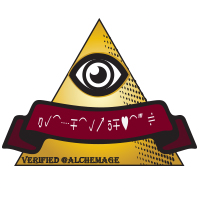

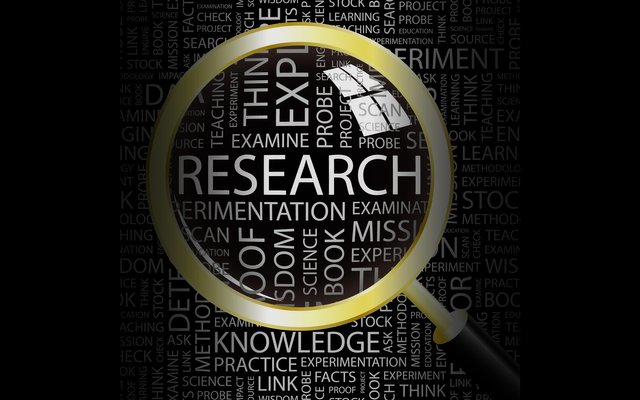

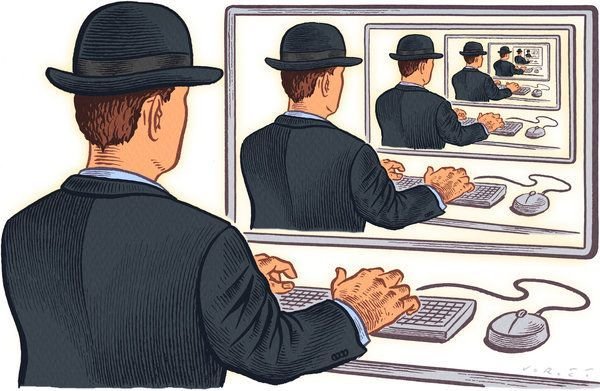
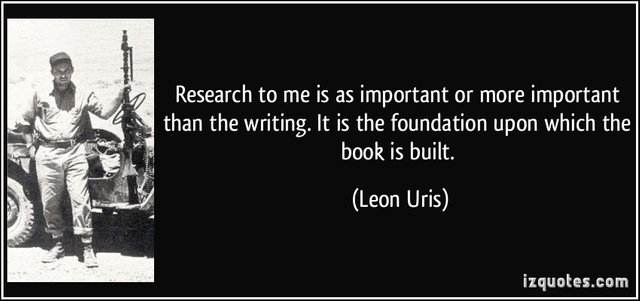
Your post has been curated by the bitcoin myk project. Tokens are available for this account you can trade for steem at: https://steem-engine.com/. Join our curation priority list to earn more tokens by registering at:
http://www.bitcoinmyk.com/register/
Bitcoin MYK
admin
Register - Bitcoin MYK
This post earned 150 BTCMYK
Outstanding!
Here’s to more critical analysis!
An amazing and relevant piece of writing that remind me to be more cautious with my own research period thank you so much for writing this I have suffered adrenal fatigue a lot in the last 15 years and am becoming well-versed in how to deal with it. I find it interesting that it is not well recognised by mainstream medicine. Sharing this I'm coming back to read it again later when I have a little more time to digest it properly xx
Posted using Partiko Android
Haha, if only the world was more skeptical and critically analytical we wouldn't be arguing about fake sources or outdated citations.
Thx for the info.
P.s i'd appreciate your review on my fitness content
Congratulations @alchemage! You have completed the following achievement on the Steem blockchain and have been rewarded with new badge(s) :
You can view your badges on your Steem Board and compare to others on the Steem Ranking
If you no longer want to receive notifications, reply to this comment with the word
STOPVote for @Steemitboard as a witness to get one more award and increased upvotes!
I frustrate my daughter because I 'm so careful about sources. I don't think you can be too careful. I like peer-reviewed studies. I look for articles that have been published from around the world. Get a better picture that way. I check the institutional affiliation of the authors. I check the citations to make sure those sources are legitimate. I"m not only careful with health information...I'm skeptical period. And then, when I've done all that, I realize I can still make a mistake, but at least I did my best.
Good article because it encourages us to be skeptics. Necessary skill to survive:)